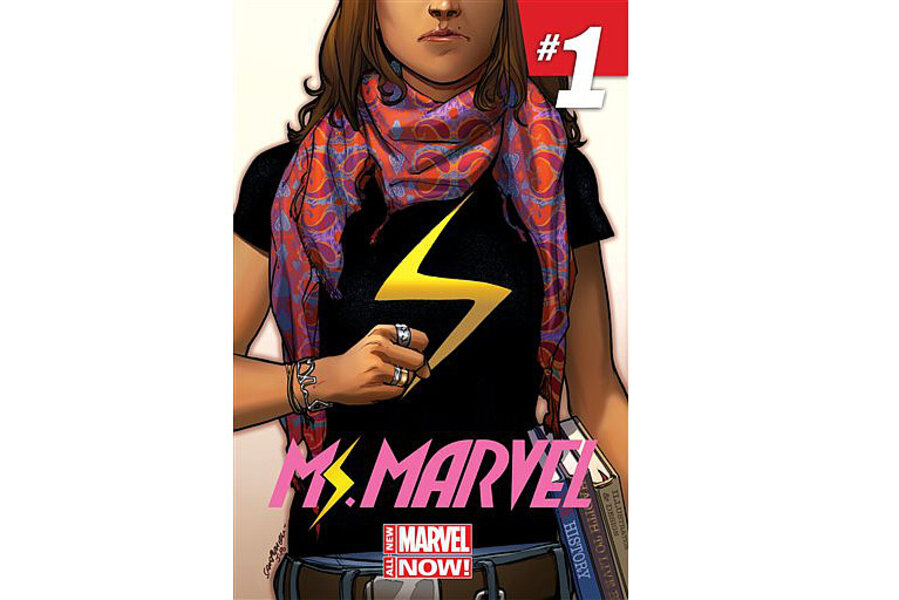Ms. Marvel? Step aside, Peter Parker: Ms. Marvel returns as Muslim teen
Loading...
Marvel Comics is bringing Ms. Marvel back as a 16-year-old daughter of Pakistani immigrants living in Jersey City named Kamala Khan.
The character — among the first to be a series protagonist who is both a woman and Muslim — is part of Marvel Entertainment's efforts to reflect a growing diversity among its readers while keeping ahold of the contemporary relevance that have underlined its foundation since the creation of Spider-Man and the X-Men in the early 1960s.
Writer G. Willow Wilson and artist Adrian Alphona, working with editor Sana Amanat, say the series reflects Khan's vibrant but kinetic world, learning to deal with superpowers, family expectations and adolescence.
Amanat calls the series a "desire to explore the Muslim-American diaspora from an authentic perspective" and what it means to be young and lost amid expectations by others while also telling the story of a teenager coming to grips with having amazing powers.
"I wanted Ms. Marvel to be true-to-life, something real people could relate to, particularly young women. High school was a very vivid time in my life, so I drew heavily on those experiences — impending adulthood, dealing with school, emotionally charged friendships that are such a huge part of being a teenager," said Willow, whose previous comics work includes Vertigo's "Cairo" and the series "Air."
"It's for all the geek girls out there and everybody else who's ever looked at life from the fringe."
She can grow and shrink her limbs and her body and, Willow said, ultimately, she'll be able to shape shift into other forms.
The idea came after a discussion with senior editor Stephen Wacker as they compared stories about growing up.
From there it germinated into a "character for all those little girls who are growing up now the way you are growing up," she recalled. Wilson was brought on board to write the series and the team quickly got approval from Marvel's creative committee to move forward.
DC Comics last fall relaunched its "Green Lantern" series with Simon Baz, an Arab American and Muslim. The character reflects writer Geoff Johns' Lebanese ancestry and his upbringing in the Detroit area.
There have been a few others: Marvel Comics has Dust, a young Afghan woman whose mutant ability to manipulate sand and dust has been part of the popular X-Men books. DC Comics in late 2010 introduced Nightrunner, a young Muslim hero of Algerian descent reared in Paris.
The creative team said that Khan's backstory, growing up Muslim, is an element of the story, but not the critical foundation, either.
"Kamala is not unlike Peter Parker," said Marvel Editor-In-Chief Axel Alonso of the teenager turned wall crawler. "She's a 16-year-old girl from the suburbs who is trying to figure out who she is and trying to forge an identity when she suddenly bestows great power and learns the great responsibility that comes with it."
Moore reported from Philadelphia. Follow him at http://www.twitter.com/mattmooreap







